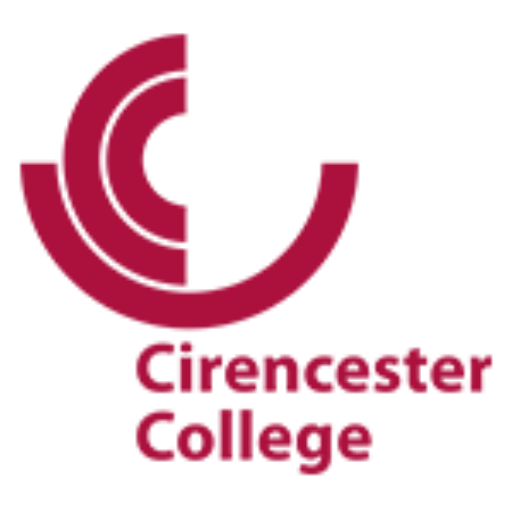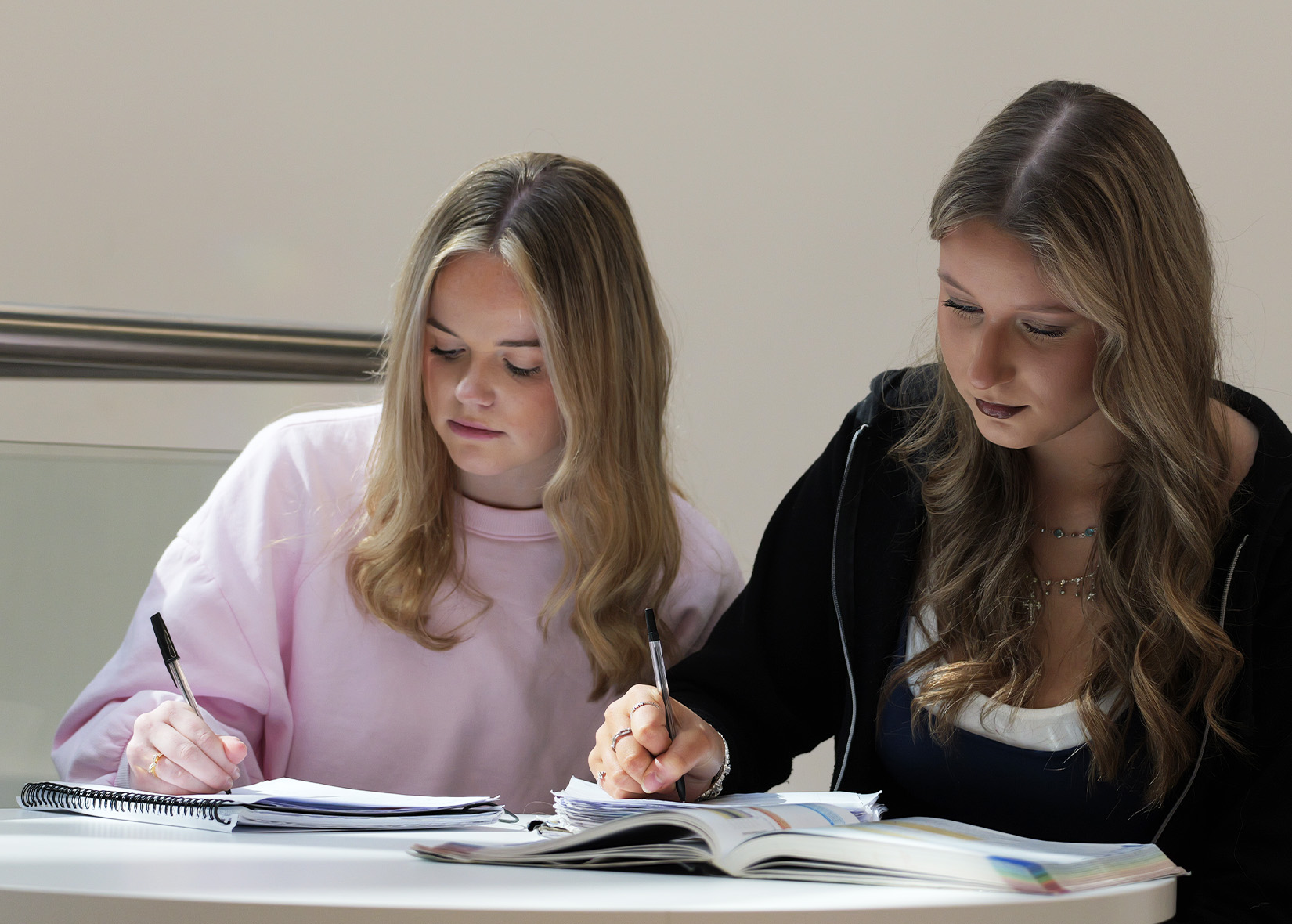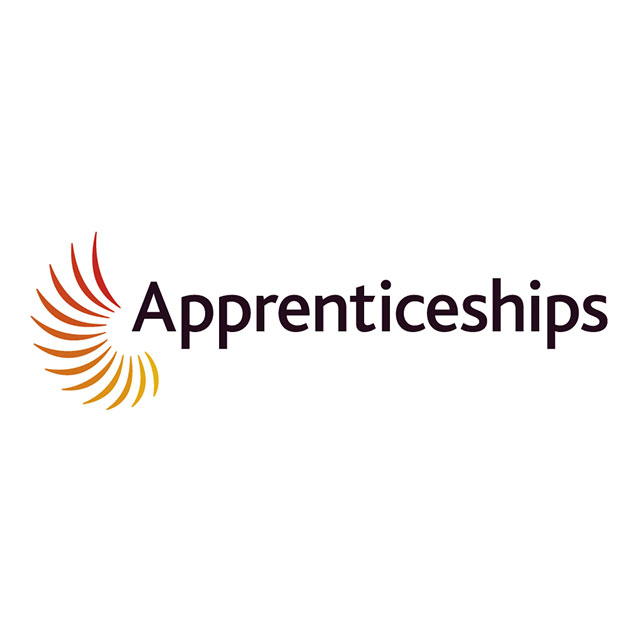A level 3 programme follows on from GCSEs (level 2) and usually comes before a degree or higher education programme. Typically, a level 3 programme will consist of three A-levels or an Extended Diploma or a T-level. You may choose to study a mixed programme consisting of a vocational qualification and fewer A-levels. All our L3 students are expected to study at least 3 A Levels or their equivalent (such as a T-level or a vocational Extended Diploma).
Qualifications Explained
What is the difference between A-level, T-level and Level 3 Extended Diplomas?
A-levels are academic qualifications. You would usually chose 3 or 4 subjects which may be unrelated but in which you have an interest. When choosing your A-levels, you should consider what you want to do next, for example, what you would like to study at University and what the relevant entry requirements are for your chosen degree.
T-levels are technical qualifications and are for those who know the career route they would like to follow. You will study one broad subject but will cover many related aspects within it, for example, you may chose to study construction design but you will also cover technical drawing, planning and regulations, surveying and project management. The T-level programme includes an in-depth industry placement for a minimum of 45 days which accounts for 20% of the programme.
Level 3 Extended Diplomas, also known as BTECs, are vocational programmes. They are similar to T-levels in that they are focused on one broad subject within a career aim. Some of these programmes also have units requiring work experience of varying lengths. You may also chose to do a smaller vocational programme such as a Certificate (one chunk) or Diploma (two chunks) and combine it with one or two A-levels.
What GCSEs do I need to have to start A-level, T-level and Level 3 Vocational programmes?
At Cirencester College, you need a minimum of 5 grade 4s at GCSE to study a Level 3 programme ie A-levels, a T-level or a Level 3 Extended Diploma. Some subjects ask for higher grades at A-level, for example, if you wish to study Maths or a Science at A-level. For any programmes which involve a lot of essays, it would be helpful for you to have a good grade in English and similarly, where the subject involves analysis or planning, a good standard of Maths is required. Please look at individual course pages to check specific entry requirements for your chosen subject.
What are the progression routes from A-level, T-level and Level 3 Vocational programmes?
Students who achieve at level 3 can progress to a university foundation or honours degree programme, an advanced or higher apprenticeship or may prefer to seek employment in their chosen field. At Cirencester College, we will help you to decide the best route for your career aim and support you to progress accordingly.
How many UCAS points do I get for A-level, T-level and Level 3 vocational programmes?
UCAS tariff points translate your grades into a numerical value to help with university applications. The number of points you have is dependant on the size of your qualification and the grade you have achieved. You can find out more on the UCAS website here UCAS Tariff Points – what are they and how do they work?
Broadly speaking, three A-levels at A* or a T-level at D* or an Extended Diploma at D*D*D* are each 168 UCAS points.
UCAS also provide a quick calculator tool to help you see what you have achieved UCAS Tariff Points – Calculate Your Entry Requirements

What is the A-level Progression Programme?
This is a one-year full programme of study designed to prepare students to begin A-levels after the year. We help you to build academic and transferable skills as well as subject-specific knowledge to ensure that when you start your A-levels, you can hit the ground running.
What is a Level 2 qualification?
The Level 2 programme is a GCSE level programme at grades 4/C or above. It could also be a vocational programme such as a BTEC level 2 or NVQ level 2, or an intermediate apprenticeship. At school, young people typically study 8 or 9 GCSEs.

What is the difference between GCSE, and a Level 2 Foundation programmes?
GCSEs are individual qualifications making up a programme of core and chosen subjects. The aim of GCSEs is to prepare you for the next level of study or work.
The Level 2 Foundation programmes, prepare young people for T-levels at level 3. They consist of career related technical qualification, English and Maths GCSE where grades need to be improved to progress, a project qualification and a work placement. The foundation programme is a good opportunity to explore a vocational subject whilst gaining the qualifications to access higher level study or an apprenticeship.
What grades do I need to start a Level 2 Foundation programme?
You will need to have mostly grade 3s at GCSE or a level 1 diploma or certificate to start this programme.
Where do I go after Level 2?
Following successful completion of the level 2 foundation programme you can progress to the relevant T-level or Level 3 vocational programme, an apprenticeship or enter the workplace in a job with training.

What is the Upgrade Programme?
The Upgrade programme is unique to Cirencester College. It is pitched at between level 1 and level 2, perhaps a level 1.5, and it is for those who need to improve their GCSE English and Maths grades to be able to access higher study such as the Level 2 transition year programme. The aim will be to help you achieve at least one grade improvement in your English and maths as well as the technical and project qualifications.
What grades do I need to do the Upgrade programme?
You will have a minimum of 3 GCSEs at grade 2 including English and Maths to do the Upgrade programme at Cirencester College.
Is there a Foundation or level 1 programme?
Cirencester College does not offer a a foundation or level 1 programme other than the Upgrade detailed above. For those who do not have three grade 2s at GCSE, we recommend a vocational route through either South Gloucestershire and Stroud College (Study Foundation at SGS College), Gloscol (Full Time Further Education | Courses For… | Gloucestershire College (gloscol.ac.uk) and select the Level 1 filter) or New College Swindon (Foundation Learning Level 1 – New College Swindon)










